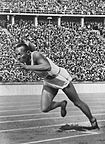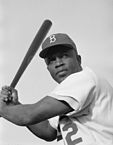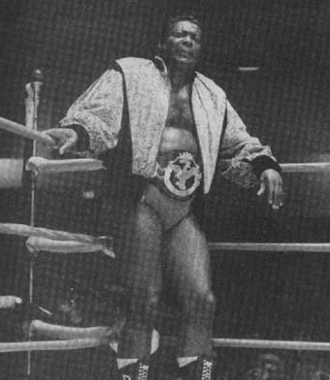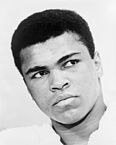Black History Month 2016: analyzing 90 years of impact in sports
February 29, 2016
Since the time the United States officially began celebrating African American heritage in February of 1926, this country has seen a drastic change in the political, social and economic landscapes that have affected the lives of Americans.
From 1926 to 1976, the celebration of African American heritage was known as “Negro History Week” during the second week of February (when Abraham Lincoln was born). In 1976, President Gerald Ford announced the recognition of Black History Month by the U.S. government.
90 years later, we take a look at how a few major African American sports figures have impacted sports during this time of rapid change.
Jesse Owens
Not too many people know a whole lot about professional track and field. But when it comes to Jesse Owens, it’s a different story. From a record-setting collegiate career at the Ohio State University to winning four gold medals at the 1936 Summer Olympics in Berlin, Germany (not to mention this was the center of Adolf Hitler’s Nazi regime), Owens ranks among one of the fastest track athletes of all time. During those Olympic games, Owens became the first African American athlete to be sponsored by a shoe company when the founder of Adidas endorsed him.His story is remembered in the recent release of the movie “Race.” Owens’ legacy lives on as black athletes have been able to flourish in track and field.
Jackie Robinson
“A life is not important except in the impact it has on other lives,” Robinson once said. After the color barrier was famously broken by Robinson in 1947, the doors opened for black athletes all across professional sports. Robinson was voted National League MVP in 1949, and was also voted to the Major League Baseball (MLB) All-Century Team. Off the field, Robinson has been recognized for his remarkable feats, by having been awarded the Spingarn Medal (given by the NAACP for outstanding achievement by a colored person), the Presidential Medal of Freedom, and the Congressional Gold Medal.
Houston Harris aka Bobo Brazil
A pioneer of his time, Bobo Brazil is credited with knocking down the walls of racial segregation in professional wrestling. In 1962, he became the first African American to win the NWA World Heavyweight Championship. He was inducted into the World Wrestling Federation (WWF) Hall of Fame in 1994.
Muhammad Ali
Perhaps one of the most influential people in history, Muhammad Ali fought in the golden age of heavyweight boxing. He had a big mouth (nicknamed the Louisville Lip), but had the skill to back it up, as evident by his professional record of 56 wins, five losses and 37 KOs. Ali competed in some of the most memorable boxing matches of all time, including the “Rumble in the Jungle” and the “Thrilla in Manila.” Even in his later years, Ali continues to have a great impact on the world as a humanitarian despite his battle with Parkinson’s.
Tiger Woods
Tiger Woods revolutionized the sport of golf. In 1997, at just 21 years old, Woods won The Masters by a record 12 strokes and finished with a record score of (-18). He also became the youngest and first non-white golfer to win the competition. Since then, he has gone on to be arguably the most successful golfer of all time. He has also had a big influence off the green. His charity, The Tiger Woods Foundation, promotes golf among inner-city children. The foundation also runs the Tiger Woods Learning Center, which has college-level courses for youth who cannot afford college.
These are just a few examples of the many athletes who have defied societal norms and did not let racism hold them back. In 1944, not a single African-American played professionally in the NBA, NFL, or MLB. 60 years later, African-American athletes make up 76.3% of the NBA, 66.3% of the NFL, and 8.3% of the MLB. Because of the boldness of these athletes, African-Americans today who aspire to play a sport professionally can make their dreams a reality.
All photos courtesy of wikipedia.org




